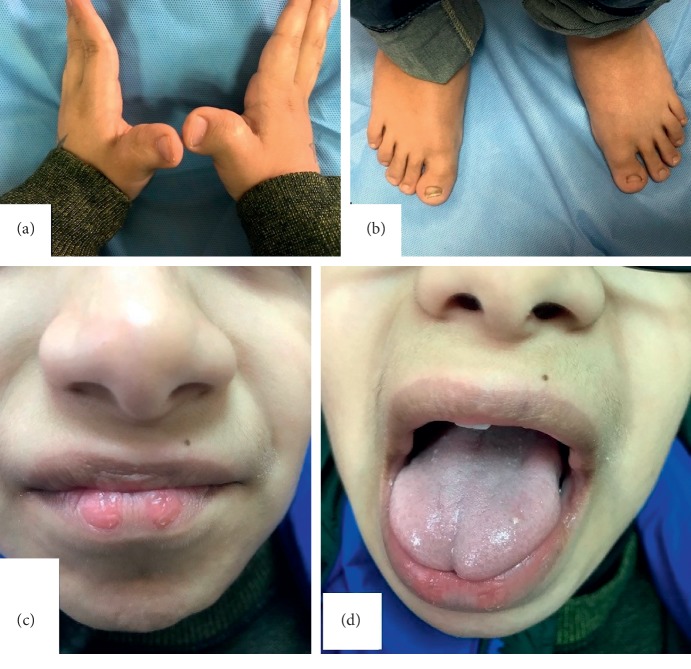Chromosome 16p13.3 Contiguous Gene Deletion Syndrome including the SLX4, DNASE1, TRAP1, and CREBBP Genes Presenting as a Relatively Mild Rubinstein-Taybi Syndrome Phenotype: A Case Report of a Saudi Boy.
Case Reports in Genetics
Pub Date : 2020-01-09
eCollection Date: 2020-01-01
DOI:10.1155/2020/6143050
引用次数: 2
Abstract
The classic Rubinstein-Taybi syndrome Type 1 (RSTS1, OMIM 180849) is caused by heterozygous mutations or deletions of the CREBBP gene. Herein, we describe the case of a Saudi boy with chromosome 16p13.3 contiguous gene deletion syndrome (OMIM 610543) including the SLX4, DNASE1, TRAP1, and CREBBP genes, but presenting with a relatively mild RSTS1 syndrome phenotype. Compared with previously reported cases with severe phenotypes associated with 16p13.3 contiguous gene deletions, our patient had partial deletion of the CREBBP gene (with a preserved 5' region), which might explain his relatively mild phenotype.

染色体16p13.3包括SLX4、DNASE1、TRAP1和CREBBP基因的连续基因缺失综合征表现为相对轻微的鲁宾斯坦-泰比综合征表型:沙特男孩一例报告
典型的Rubinstein-Taybi综合征1型(RSTS1, OMIM 180849)是由CREBBP基因杂合突变或缺失引起的。在这里,我们描述了一个沙特男孩的病例,他患有染色体16p13.3连续基因缺失综合征(OMIM 610543),包括SLX4、DNASE1、TRAP1和CREBBP基因,但表现为相对轻微的RSTS1综合征表型。与先前报道的与16p13.3连续基因缺失相关的严重表型病例相比,我们的患者有部分CREBBP基因缺失(保留了5'区),这可能解释了他相对温和的表型。
本文章由计算机程序翻译,如有差异,请以英文原文为准。
求助全文
约1分钟内获得全文
求助全文

 求助内容:
求助内容: 应助结果提醒方式:
应助结果提醒方式:


